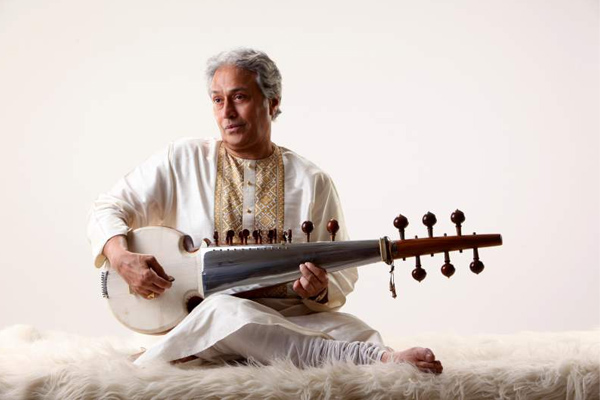For more on radio and music business news. | Click on RNMBiz


MUMBAI: Stressing on the importance of composition and presentation, legendary sarod player Ustad Amjad Ali Khan on Sunday said even traditional Indian classical music calls for innovation.
"In India, we blindly worship the convention whether it is religion or classical music. There is nothing wrong, and I also did it all my life. But tradition allows innovation. My father (Hafiz Ali Khan) who was my guru gave me liberty to go ahead with my thoughts and views," Khan said while discussing his book "Master on Masters" at the Tata Steel Kolkata Literary Meet 2019 here.
He gave more importance to compositions (known as Rachana or Bandish). They were created to preserve the 'Raga' (moods of Indian classical music). There is no need to give lengthy introductions of all the Ragas, he said.
"If compositions are beautiful, Ragas will become more interesting and vice-versa. Young musicians should pay attention on compositions," Khan said.
Sharing an important lesson, the veteran musician said, “Long rendering or presentation of any Raga sometimes becomes very boring and repetitive also. Every musician cannot do justice with 'Alap, Jor and Jhala' (conventional structuring of Raga)."
"No guru can help in teaching how to present. He can teach grammar and literature but every musician has the liberty to do their own performance on the stage," the sarod maestro said.
He wished that every guru tells their disciples about the length of singing various ragas, but it never happens.
Giving a glimpse of the life of Pandit Kumar Gandharva, the author said he was a child prodigy who could copy legendary musicians at the age of 12. He paid attention to the literature of composition.
Many classical "singers cannot be understood after a few lines" as they get involved in 'technical singing'. But he tried to understand the folk music, paid attention to literature and presented in his own way.
"Kumar Gandharvji's music was very colourful. Many so-called purists didn't approve of his genius," Khan said.
In his book, the master revealed his experiences with other icons like Pandit Kishan Maharaj, Ravi Shankar, Vilayat Khan and others who had their own vision and have contributed immensely to Indian classical music.
He also spoke about some instances of 'love-hate relationships between musicians' and also how he steered clear of any unpleasant situation, as he had immense respect for these stalwarts. The book reveals interesting anecdotes of the same.
Addressing the topic of Indian music losing its charm, he said, “Great masters have gone. Suddenly we feel the vacuum, they were the cause of making Indian classical music popular and we miss them."
About modern instruments, Khan said, "Keyboard is a great invention and I respect the person for it. But it has destroyed the livelihood of many musicians. It can produce the sound of violin and sitar."
"But thank God there is no sound of sarod in the keyboard, I would have been out of a job then," he jokingly said.
(Source: IANS)